2 brothers dropped everything to travel the world and take oddly pleasing top-down drone photos of airplanes, cars, boats, and more – here's how they did it
Thomas Pallini

- JP and Mike Andrews run Aerial Abstract Art, a photography company that takes unique top-down photos of objects in nature using a drone.
- Following a 2016 trip to Australia, the brothers decided to drop everything to pursue their passion, buying a drone to photograph the world from the unique aerial vantage point a drone provides.
- The duo has since turned their dream of traveling the world into a successful business using Instagram and just reached 100,000 followers.
"The point is not to work out what it is, but to show how weird and wonderful the world can look from above."
That line follows nearly every photo posted to the Abstract Aerial Art Instagram page run by two brothers from the UK, Mike and JP Andrews. True its name, the page is filled with top-down photographs of scenes across the globe taken by the brothers with a drone.
A seemingly simple concept, the popularity of the stunning and aesthetically pleasing photos has soared to heights not even expected by its founders, who just hit the 100,000 follower mark on the photo-sharing platform.
The almost four-year-old enterprise was started in 2016 after the duo, spurred by heartbreak, packed up and flew to Australia to spend a year driving up the continent's east coast. Unimpressed with their initial beach and bar-hopping experience, the Andrews' amended their plans and headed into the Outback.
Eventually winding up in Perth with a broken-down car after crossing the continent, Mike and JP returned to England expecting to pick up where they left off in their respective jobs and lives.
But Australia wasn't through with them yet and they soon found themselves back in the wilderness armed with a drone and an idea of how to keep their dream alive.
Here's how they did it.
The two brothers wound up back in Australia before year's end in 2016 with an Inspire 1 Pro that they dipped into their savings to purchase.
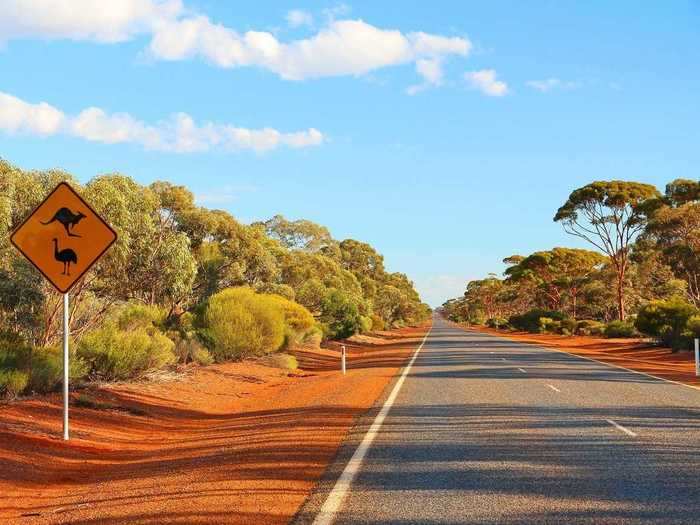
They'd seen the beauty of the Outback firsthand and up close but the drone would allow them to experience and photograph it from a unique point of view. Drone photography was still in its nascent years then and wasn't as pervasive as it is now.
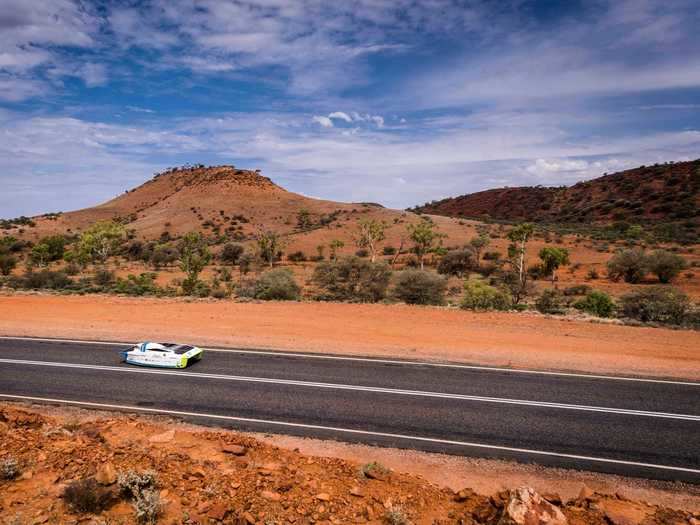
The wide-open spaces provided by the desert environment allowed them to practice their new craft without interruption while capturing stunning photos from above and showcase vistas in a way normally only accomplished with airplanes or helicopters.
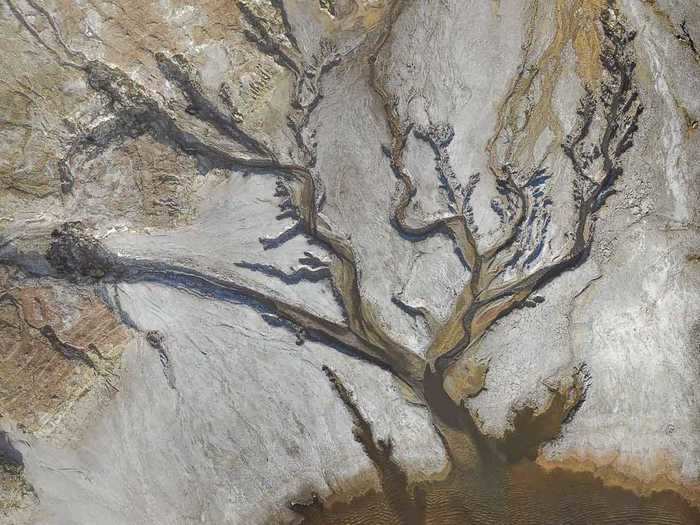
"We just pointed the camera down and took some snaps, got back on the computer and looked down and thought, 'wow, that's incredible,'" JP Andrews told Business Insider in an interview. "That looks like abstract art."
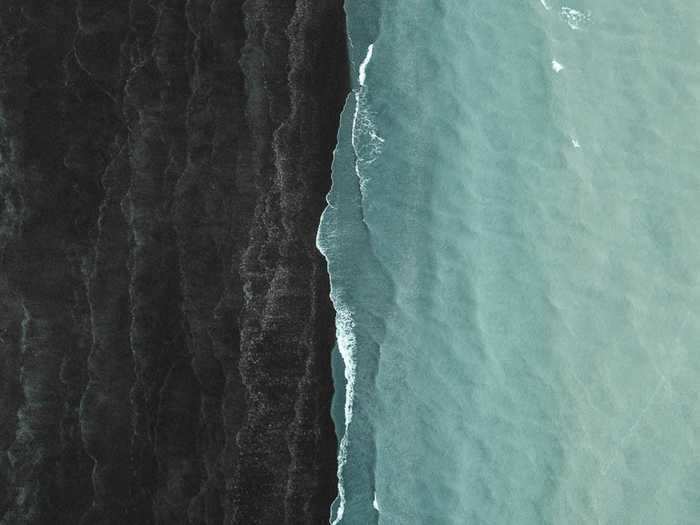
And off they want, in search of the best locations for their new style of photography. Australia, as they found, had no shortage of unique sights to photograph including this mix of oil and iron near a refinery.

The majority are true abstracts and it's often impossible to tell what the subject of each photo is. The brothers took me through 50 photos and nearly all of my guesses were completely wrong, including this one of an aluminum mine somewhere in Australia.
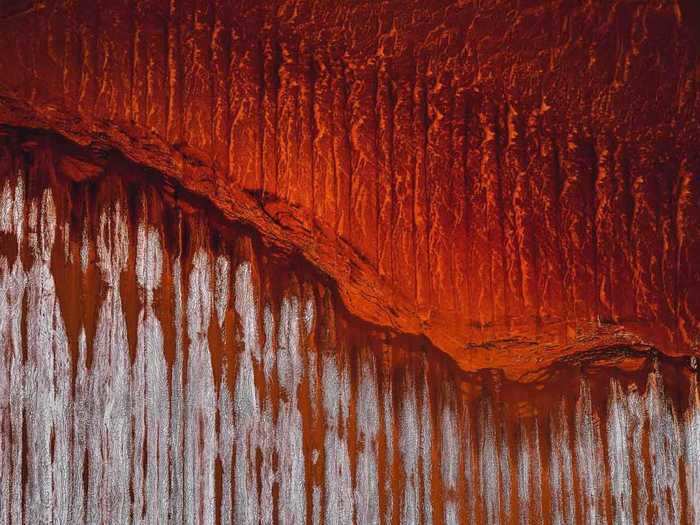
Just a few days before Christmas in 2016, the Andrews' started their own Instagram page, Abstract Aerial Art, which they've since grown to over 100,000 followers.

The response from the photographs on the platform was almost immediate with the brothers receiving messages of support from large companies and other photographers that encouraged them to keep going.
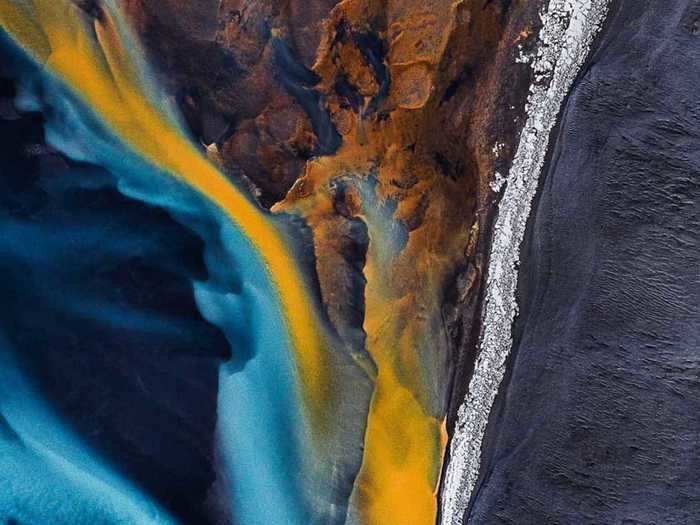
So they began traveling in search of more photos, and it's taken them all over the world.
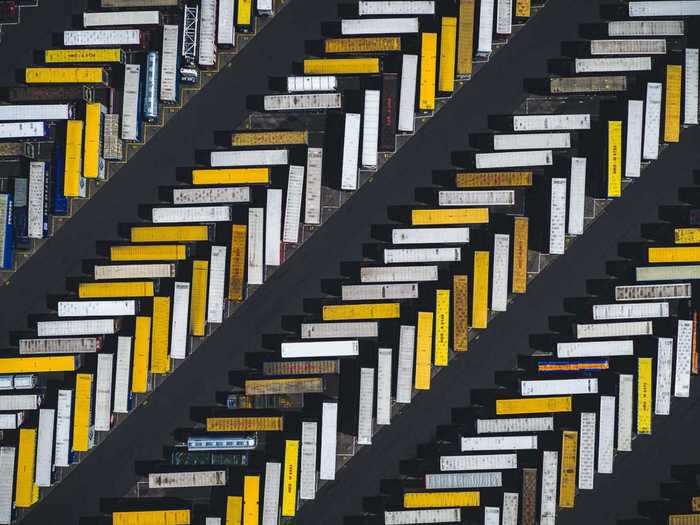
The brothers have taken their unique craft to Asia...
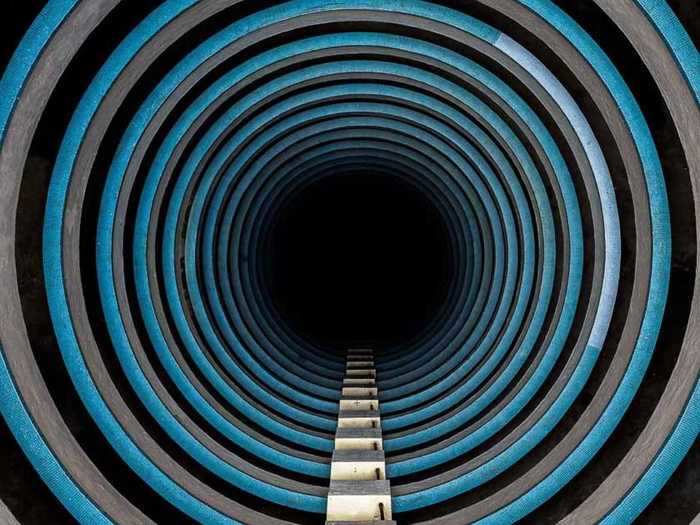
The Middle East...
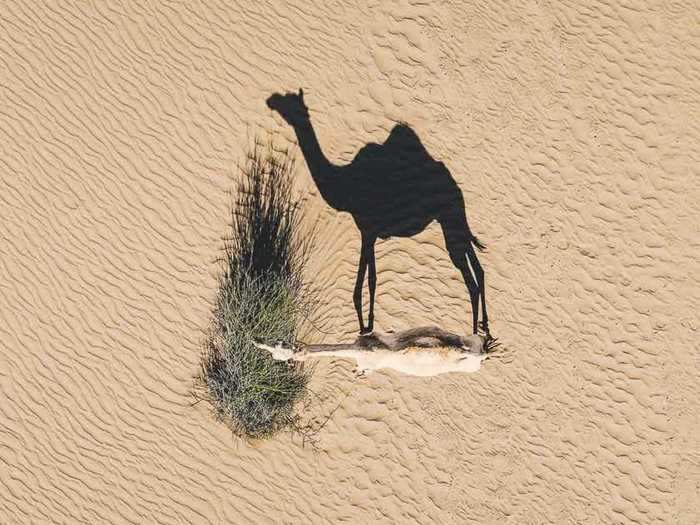
America...
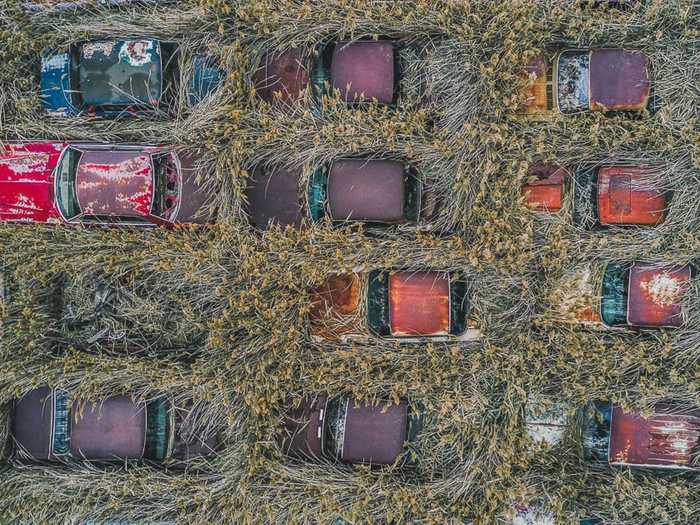
And across Europe, snapping photos from their aerial vantage point. They're not the photos most people think of when those locations come to mind but it's how the Andrews now see the world.

Though the concept seems simple – launch a drone and point the camera down – there's a lot of preparation that goes on behind the scenes.
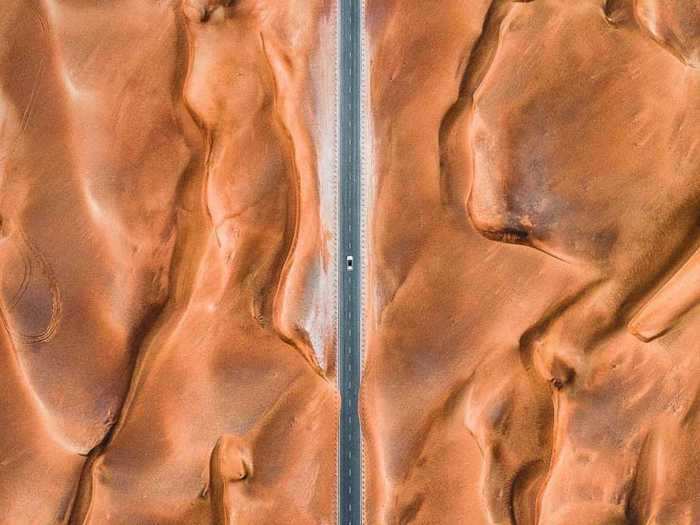
Google Earth is often used to scout locations beforehand, with the two becoming an expert with the software to pinpoint the most unusual locations in even the largest cities, like Hong Kong.
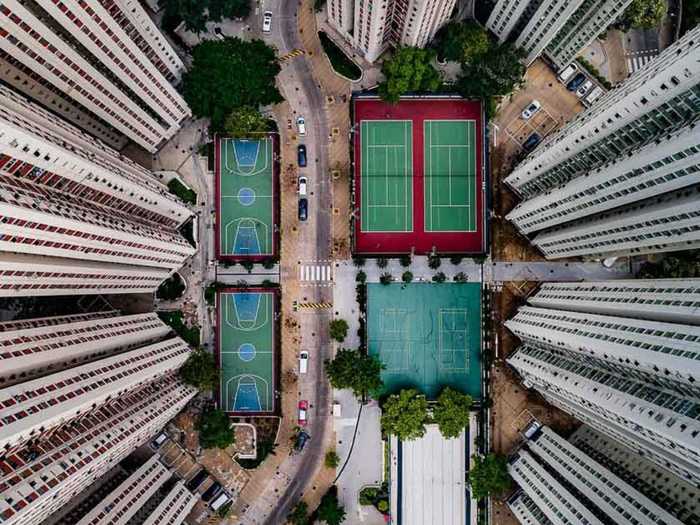
On the outskirts of the city near an industrial park, for example, JP and Mike found this fuselage used as a trainer for firefighters that practice battling aircraft fires.
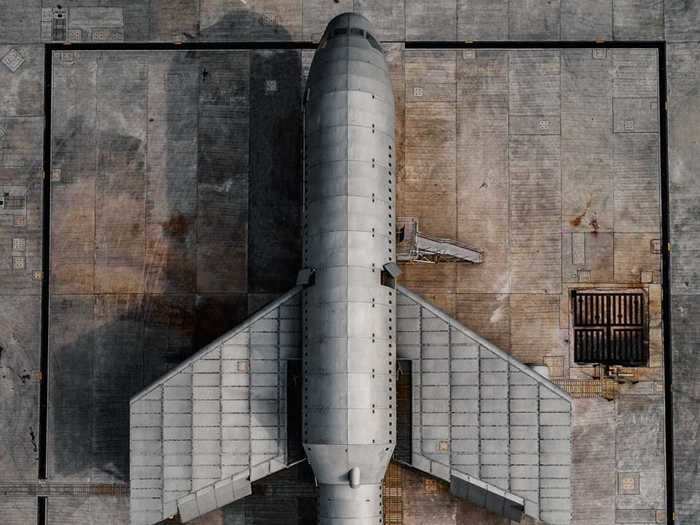
And while tourists to the city are after the views of these buildings from Victoria Peak, the brothers were chiefly interested in the top-down view using the drone.
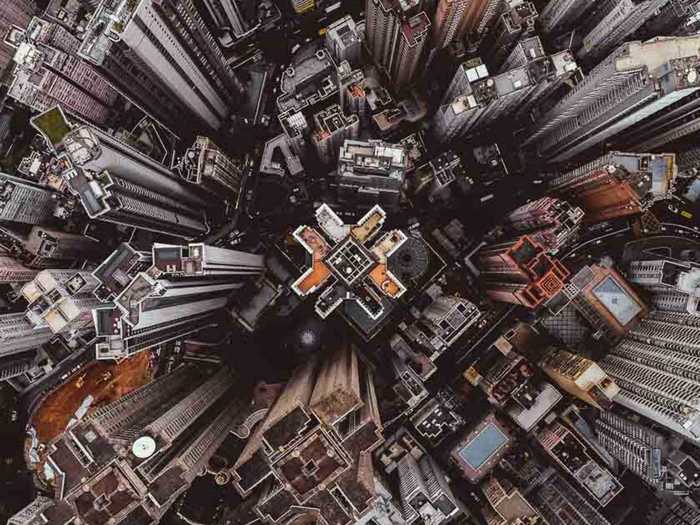
JP and Mike also hate when people are in their photos, for the most part, so they'll often scout out a spot to know when it'll be deserted so they can come back and get the ideal shot. It can take hours, sometimes, but gets this perfect shot of a beach in Italy just after sunrise.
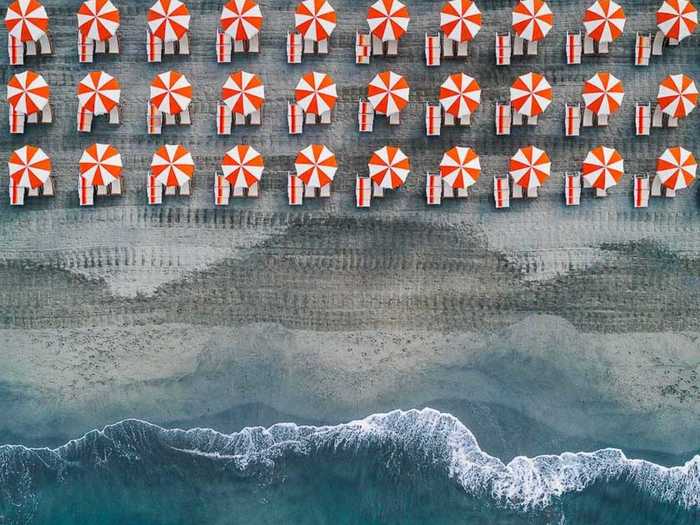
In other cases, like during a trip to Germany, a random person in a photo can enhance its aesthetic.
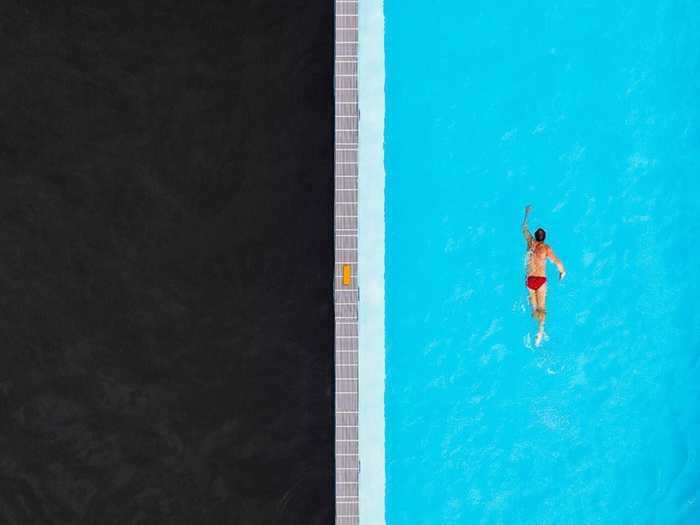
To capture this photo, aptly named "Skyline" thanks to the reflection of the containers on the river," the brothers drove through the night from the UK to the Netherlands to get the shot. They got lucky and only had to wait around 30 minutes before they completed their mission.
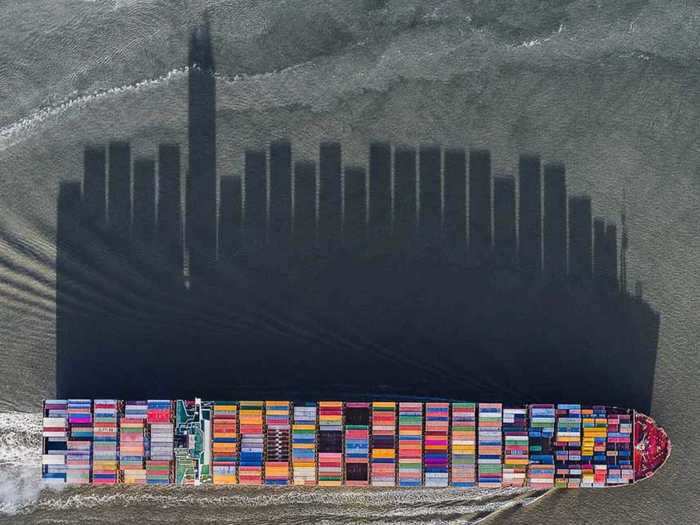
Even with hours of planning, though, sometimes getting the right shot comes down to luck. While on a shoot in Italy, a fire had burned hundreds of cars in an Italian port city and the brothers had inadvertently stumbled upon this graveyard while flying back from their main subject.
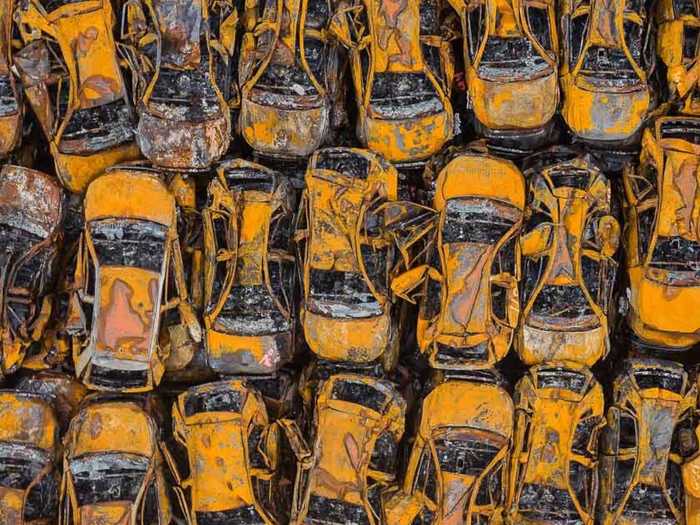
And while in Dubai, they got lucky with a surprise rain that made the road darker and better for this photo.
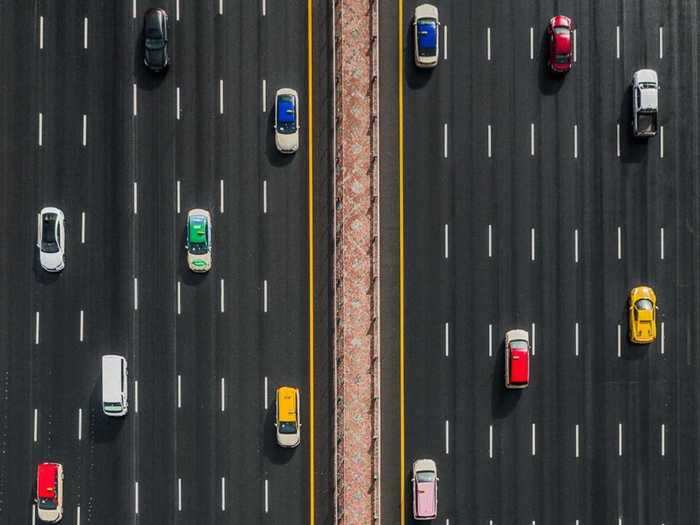
Most of the shots are taken from a height of around 400 feet, below the flight path of planes flying overhead.
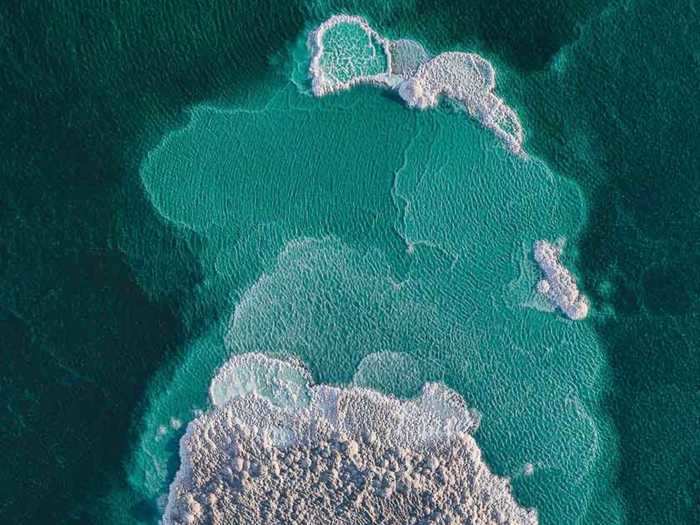
Without being able to stage most of the photos, the brothers are relying heavily on the natural beauty of the outdoors and are often surprised by what they're able to get.

It's almost as if the objects in some photos know they're posing for a photo and arrange themselves in the most especially pleasing way possible.
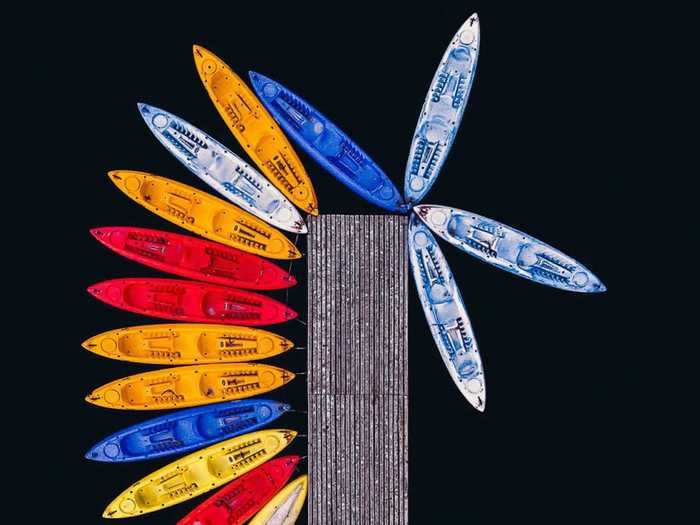
Art installations also make for great aerial photos, as the brothers found in Spain and Belgium.
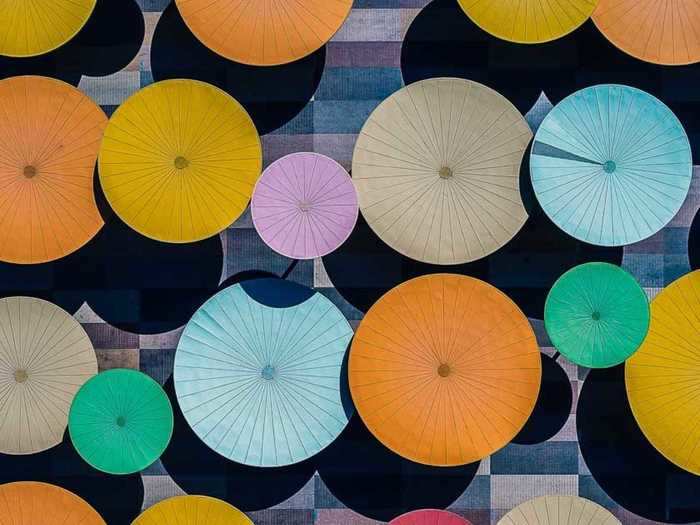
Often very little staging goes into the photos but the brothers decided to go nuclear with the black and yellow umbrella in the middle of a Belgian maze. The drone also came in handy when it was time to exit the labyrinth.
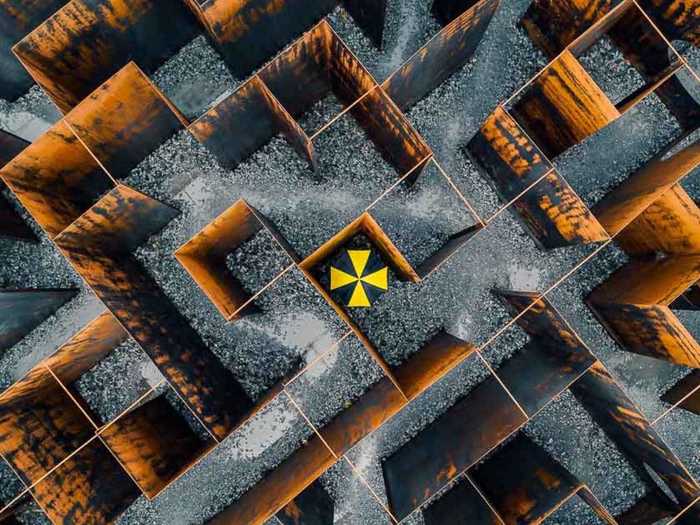
The term abstract is used more generally on the page, with some photos featuring easily identifiable subjects like this abandoned Cold War-era jet in a Belgian field,
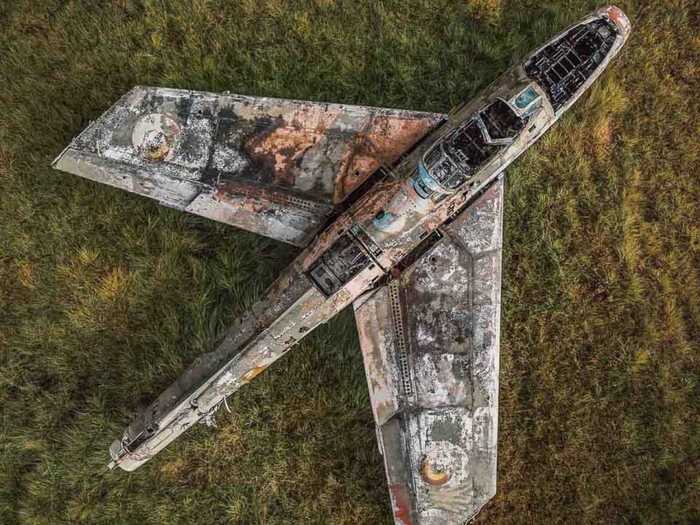
Or this dilapidated plane in Italy.
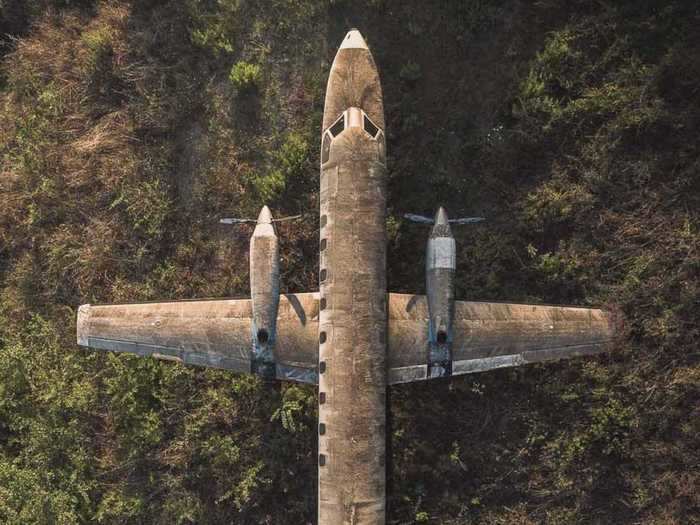
Sometimes, their little red hatchback will make its way into the photos to give perspective.
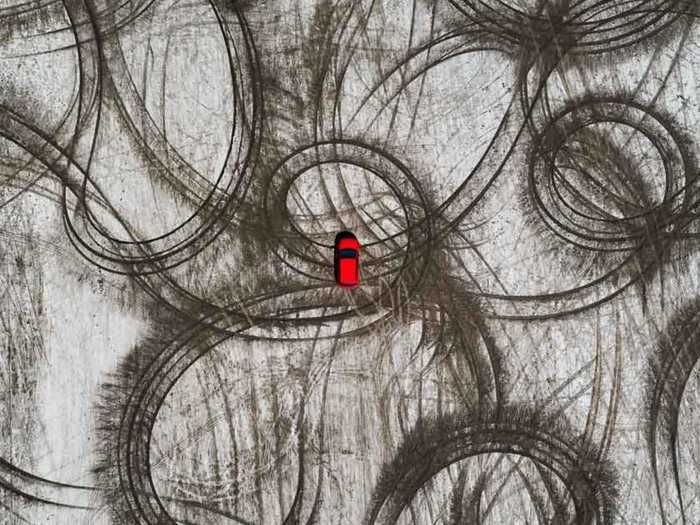
It's been all across Europe with them, including this car park at the near-abandoned Ciudad Real Airport in Spain.
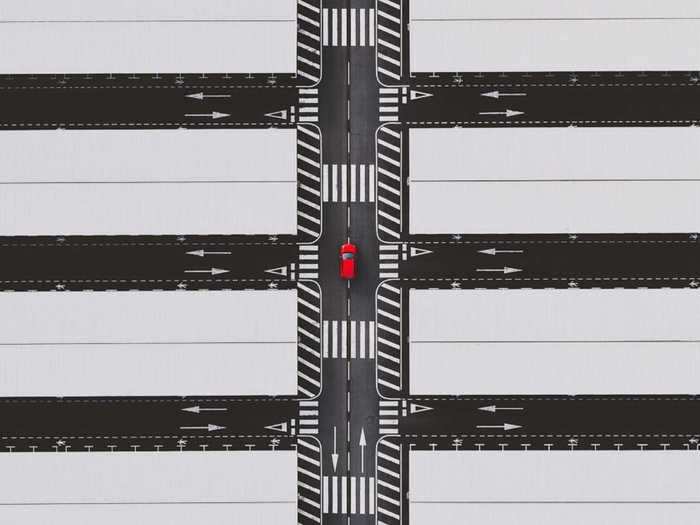
Some photos, however, do have a true abstract feel as if they were painted by Pablo Picasso himself and coincidentally, this photo was taken in Spain.
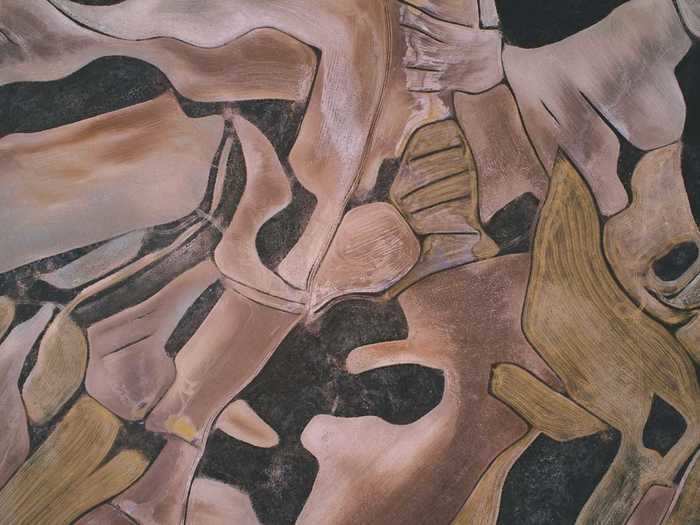
Similarly to Australia, the brothers have found that Iceland makes for great aerial photos thanks to its natural wonders like black sand beaches and braided rivers.
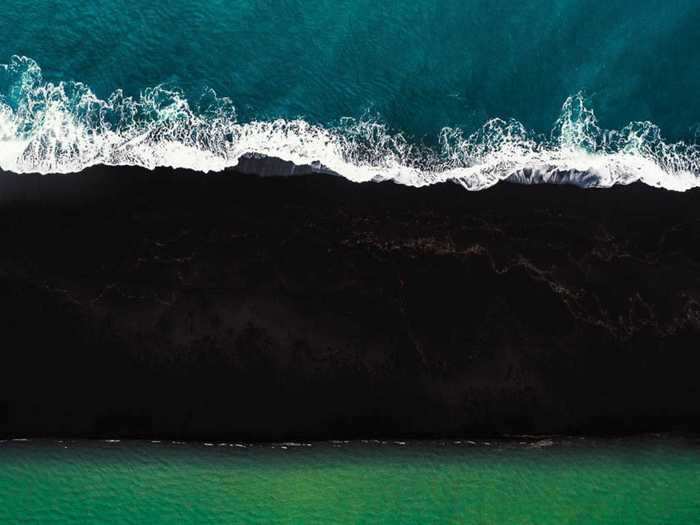
The natural beauty formed by the land of ice and snow has produced truly awe-inspiring photos taken from above.
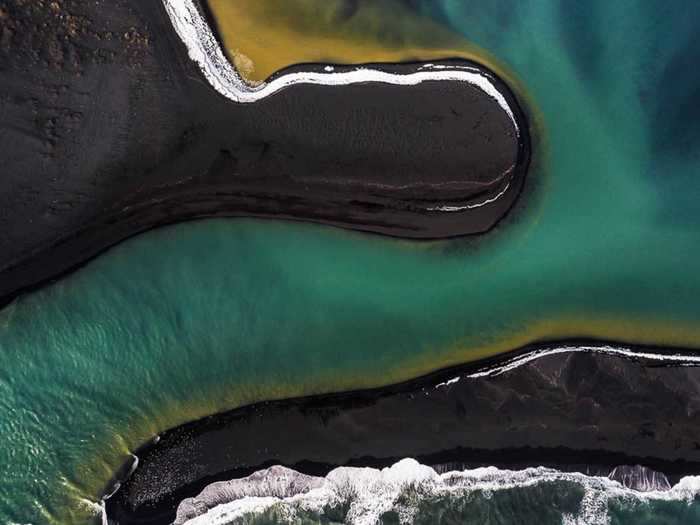
They've even stumbled upon the unnatural sights that Iceland has to offer, including the 1973 wreck of a US Navy Douglas DC-3 aircraft.
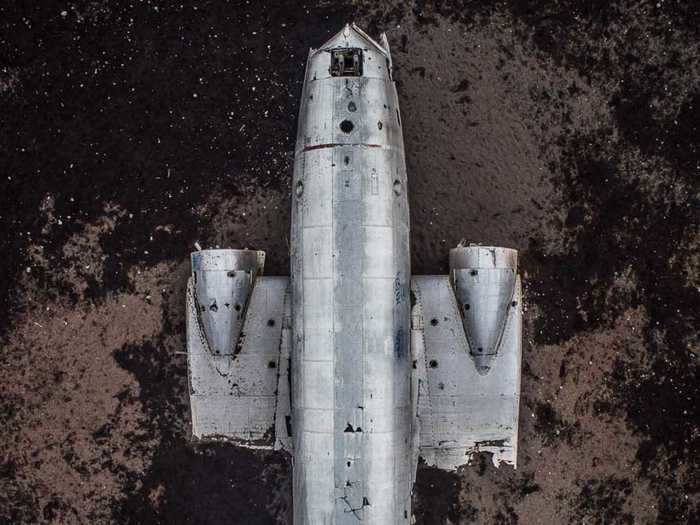
Source: Atlas Obscura
In true abstract form, JP and Mike don't often know exactly what they're taking photos of and they often don't need to.
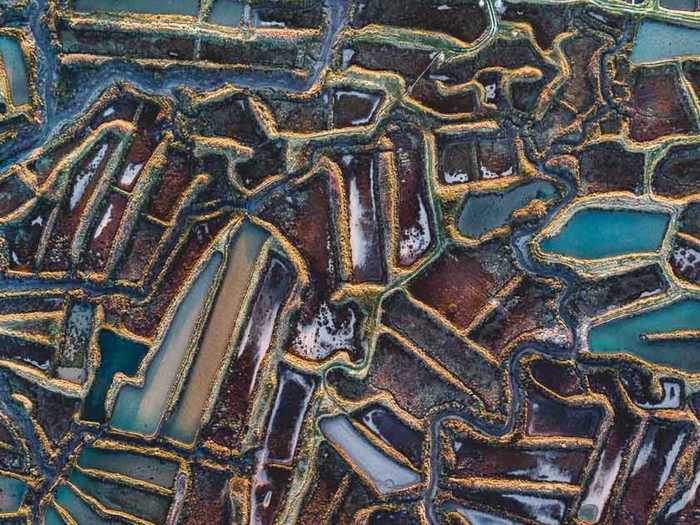
They'll often speculate, like with these random lines in a Dutch forest that they presume was a traffic circle at one point.
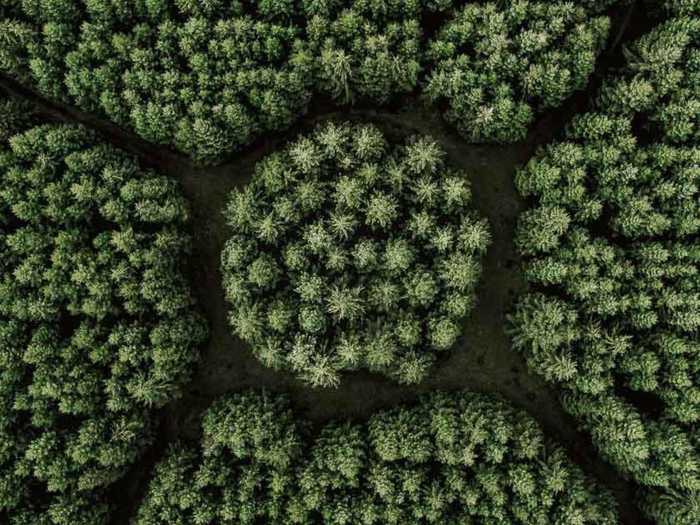
But as their motto states, it doesn't matter what the subject is.
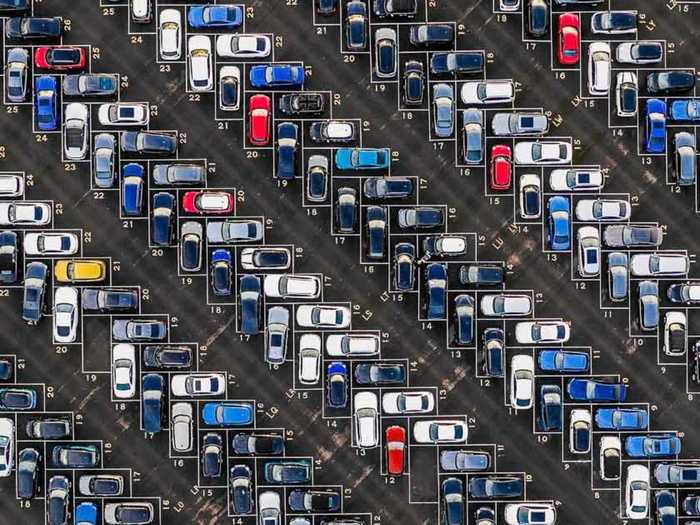
Knowing the subject might ruin the illusion. For example, I initially thought this photo was an extreme close-up of a piece of fabric and was shocked to discover it was of a coal mine in Germany.
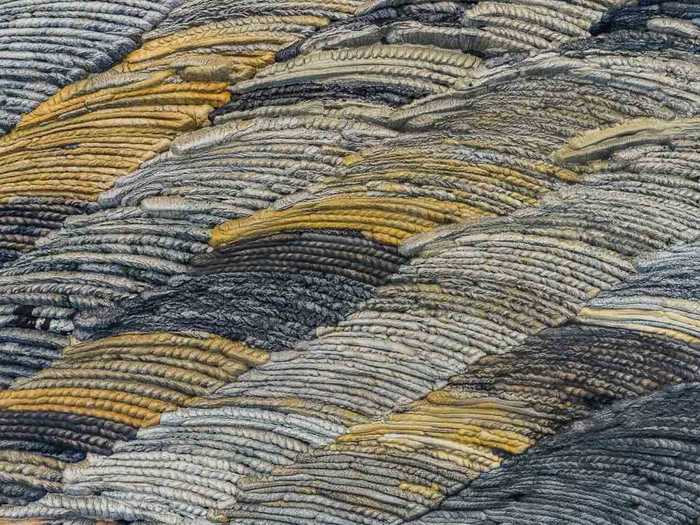
But that doesn't stop their followers from wanting to know or commenting if they know what it is.
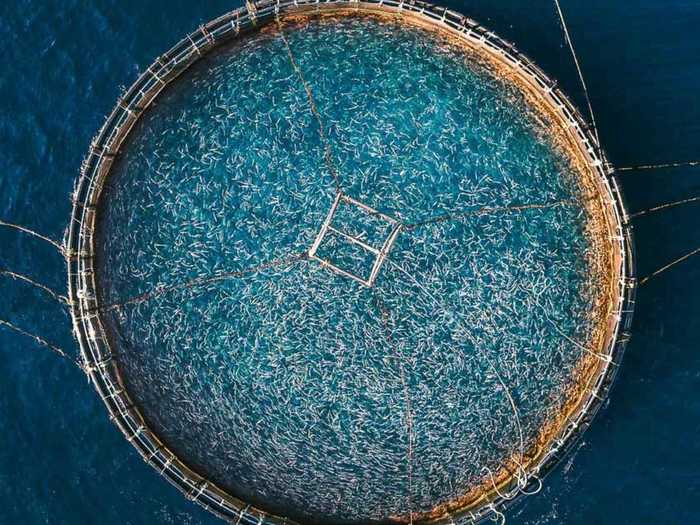
This photo of an abandoned fighter jet in Europe spurred a discussion in the comment section with followers debated whether it was an F-15 or a Panavia Tornado. (It's a Tornado.)
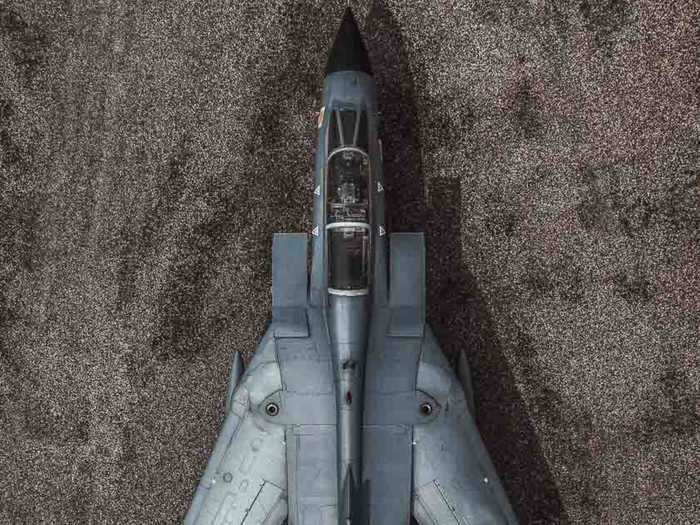
When it comes to running their social media page, the brothers say that the key is engagement.
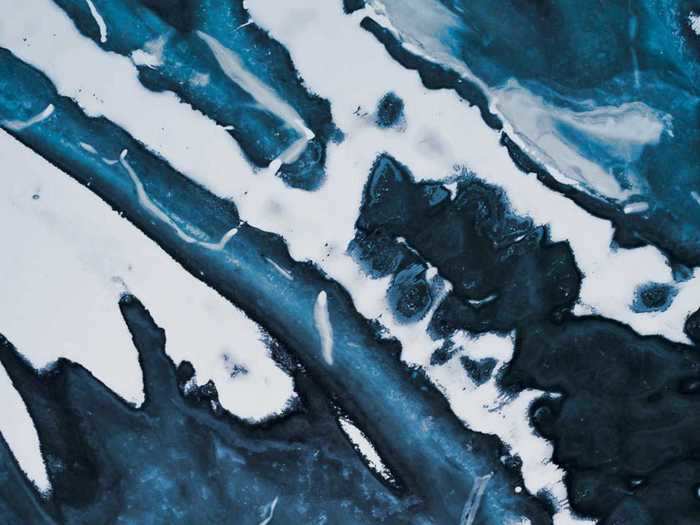
JP and Mike try to respond to every message and comment they get and will tell followers trying to build their own accounts that engagement is important, especially as Instagram's algorithms supposedly favor engagement.

The photography enabled JP and Mike to land a contract with Getty Images, allowing them to do this for a living. It's a dream come true.
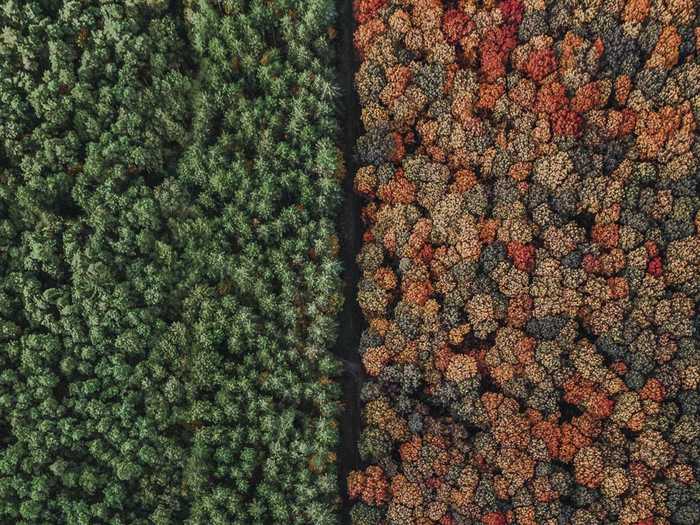
"We've got a contract with Getty, which is great," Mike Andrews said. "We can supply them, we travel the world and supply them and get paid from them. And we'll just continue doing Instagram [which] is what we love."

The popularity of the photos has grown so much that major brands or companies will also hire JP and Mike to photograph their products.

A recent project with VistaJet saw the brothers at an airport snapping photos of a $70 million private jet, the Bombardier Global 7500.
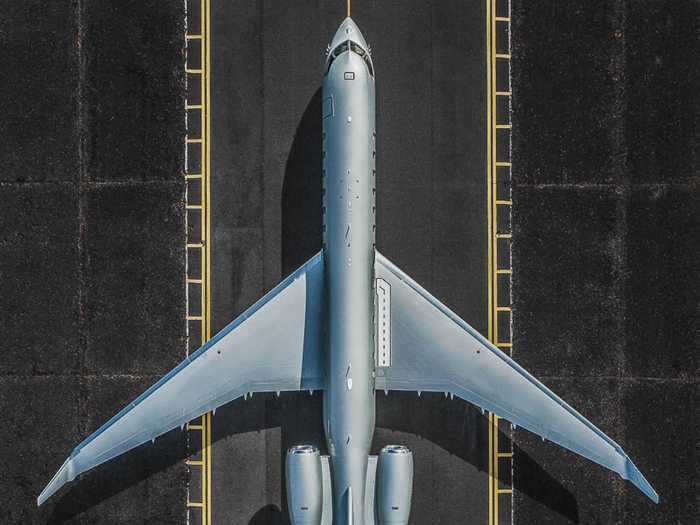
Here's what that plane looks like from a normal perspective.
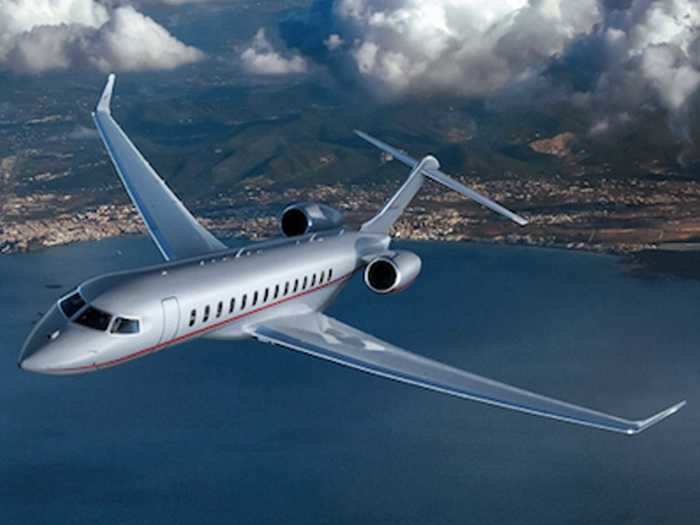
The trifecta of the Getty contract, Instagram success, and the side jobs for companies like VistaJet is enough to keep them going, plus they also sell prints of their photos on their website.

The brothers do want to eventually work with an artist to expand upon the pictures and use them to create "3D pieces of art."
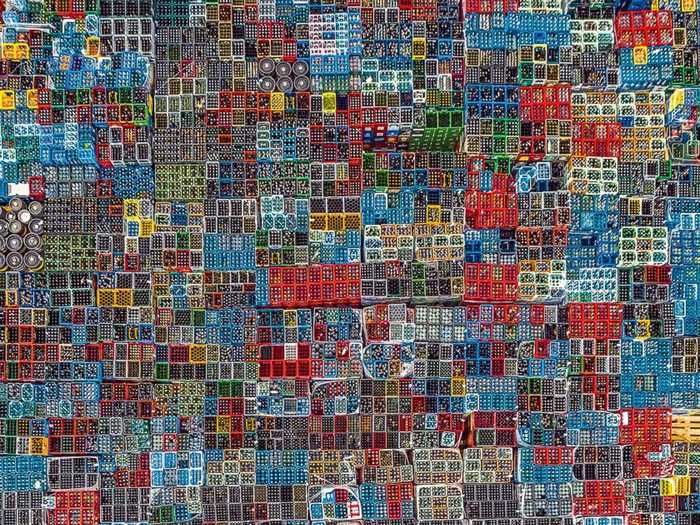
A book of their work is also on the list as the collection, combined with the anecdotes of their travels, would make a great coffee table book.
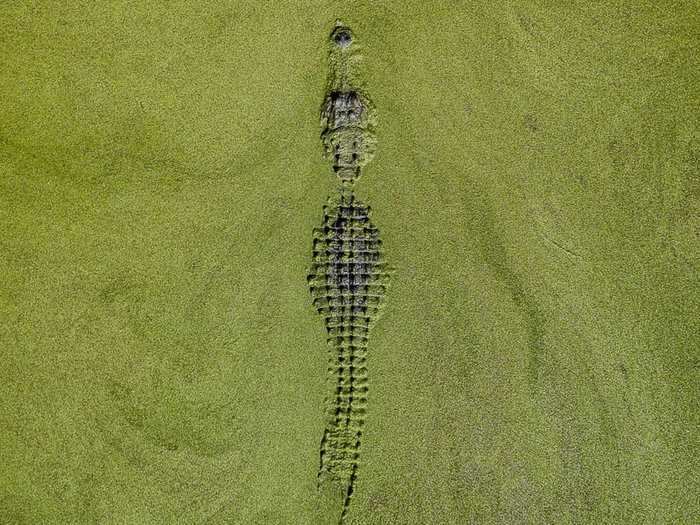
The pandemic has largely grounded the photographers, forcing them to draw from their backlog during the downtime until they can travel again.
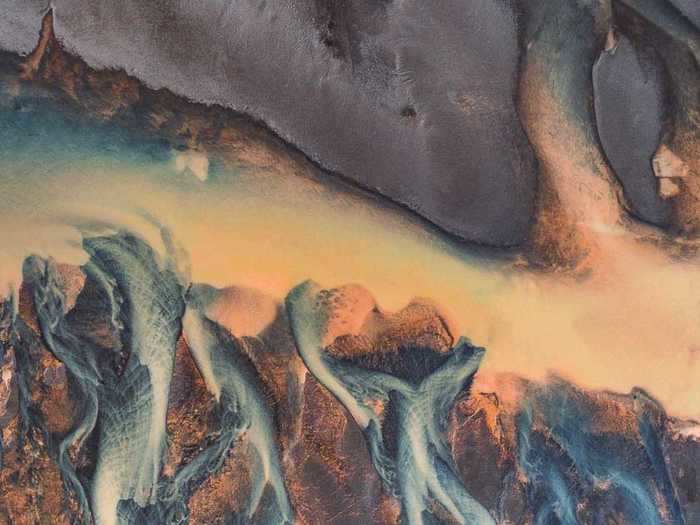
But as long as they get to continue to photograph and travel, whatever project they take on next will be exactly what they want to be doing.
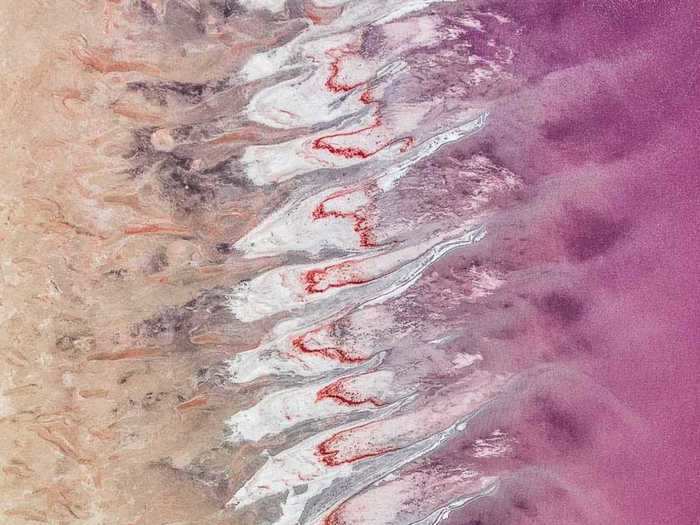
"I mean, to be honest, we don't really want to do anything different than what we're doing now," JP Andrews said. "We get to travel the world and we don't get asked to do anything other than what we're doing."
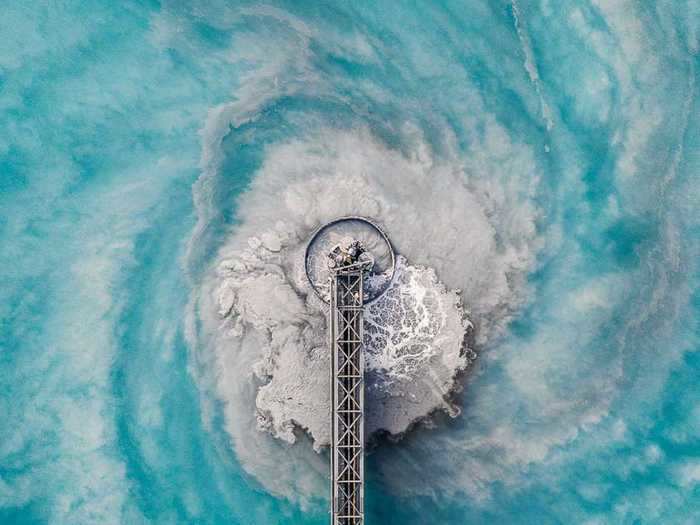
READ MORE ARTICLES ON
Popular Right Now
Popular Keywords
Advertisement